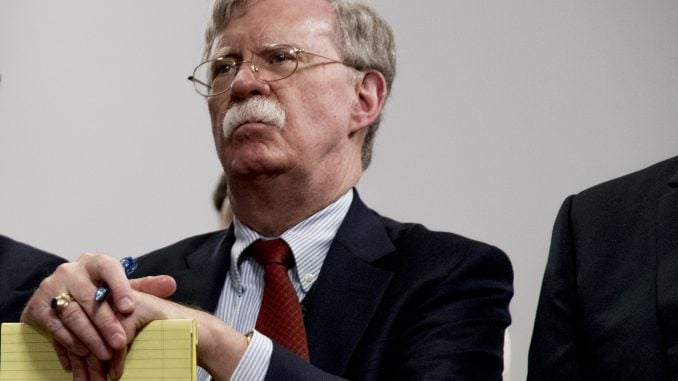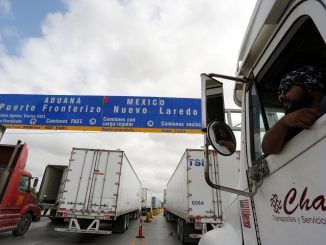
WASHINGTON, D.C. — President Donald Trump on Tuesday forced out John Bolton, his hawkish national security adviser with whom he had disagreements on Iran, Afghanistan and other global challenges.
The two men offered opposing accounts on Bolton’s less-than-friendly departure, final shots for what had been a fractious relationship almost from the start.
Trump tweeted that he told Bolton Monday night his services were no longer needed at the White House and Bolton submitted his resignation Tuesday morning. Bolton responded in a tweet of his own that he offered to resign Monday “and President Trump said, ‘Let’s talk about it tomorrow.'”
Trump said that he had “disagreed strongly” with many of Bolton’s suggestions as national security adviser, “as did others in the administration.”
The departure comes at a trying moment for the Trump administration on the world stage, weeks ahead of the United Nations General Assembly and as the president faces pressing decisions on a host of foreign policy issues.
Since joining the administration in the spring of last year, Bolton has espoused skepticism about the president’s whirlwind rapprochement with North Korea and has advocated against Trump’s decision last year to pull U.S. troops out of Syria. He masterminded a quiet campaign inside the administration and with allies abroad to persuade Trump to keep U.S. forces in Syria to counter the remnants of the Islamic State and Iranian influence in the region.
Bolton was also opposed to Trump’s now-scrapped notion to bring Taliban negotiators to Camp David last weekend to try to finalize a peace deal in Afghanistan.
One Republican familiar with the disagreements between Trump and Bolton said the adviser’s opposition to a possible meeting between Trump and Iranian President Hassan Rouhani was a precipitating factor in the dismissal. French President Emmanuel Macron has been trying to broker such a meeting, possibly on the sidelines of the upcoming U.N. General Assembly, in the hope of salvaging the international Iran nuclear deal that Trump withdrew from.
In Tehran, Hesameddin Ashena an adviser to Rouhani said in a tweet that dismissal of Bolton was a result of the “resistance” of Iran, adding that “cornering and omitting Bolton is a strong sign of failure of maximal pressure policy of the U.S.”
Pompeo said Trump has been clear that he is willing to meet with Rouhani “with no preconditions.” Speaking at an unrelated briefing at the White House, Pompeo acknowledged that he had often disagreed with Bolton on issues.
“There were many times that Ambassador Bolton and I disagreed. That’s to be sure,” Pompeo said.
Treasury Secretary Steven Mnuchin, who appeared with Pompeo, said: “The president’s view of the Iraq war and Ambassador Bolton’s was very different.”
Asked if world leaders should expect changes in Trump’s foreign policies going forward, Pompeo replied: “I don’t think any leader around the world should make any assumption that because some one of us departs that President Trump’s foreign policy will change in a material way.”
Bolton and his National Security Council staff were also viewed warily by some in the White House who viewed them as more attuned to their own agendas than the president’s — and some administration aides have accused Bolton’s staff of being behind leaks of information embarrassing to Trump.
Bolton’s ouster came as a surprise to many in the White House. Just an hour before Trump’s tweet, the press office announced that Bolton would join Pompeo and Treasury Secretary Steven Mnuchin in a briefing. A White House official said that Bolton had departed the premises after Trump’s tweet and would no longer appear as scheduled.
White House spokesman Hogan Gidley said Charles Kupperman, the deputy national security adviser and a former Reagan administration official and defense contracting executive, would fill Bolton’s role on an acting basis. Trump said he would name a replacement for Bolton next week.



